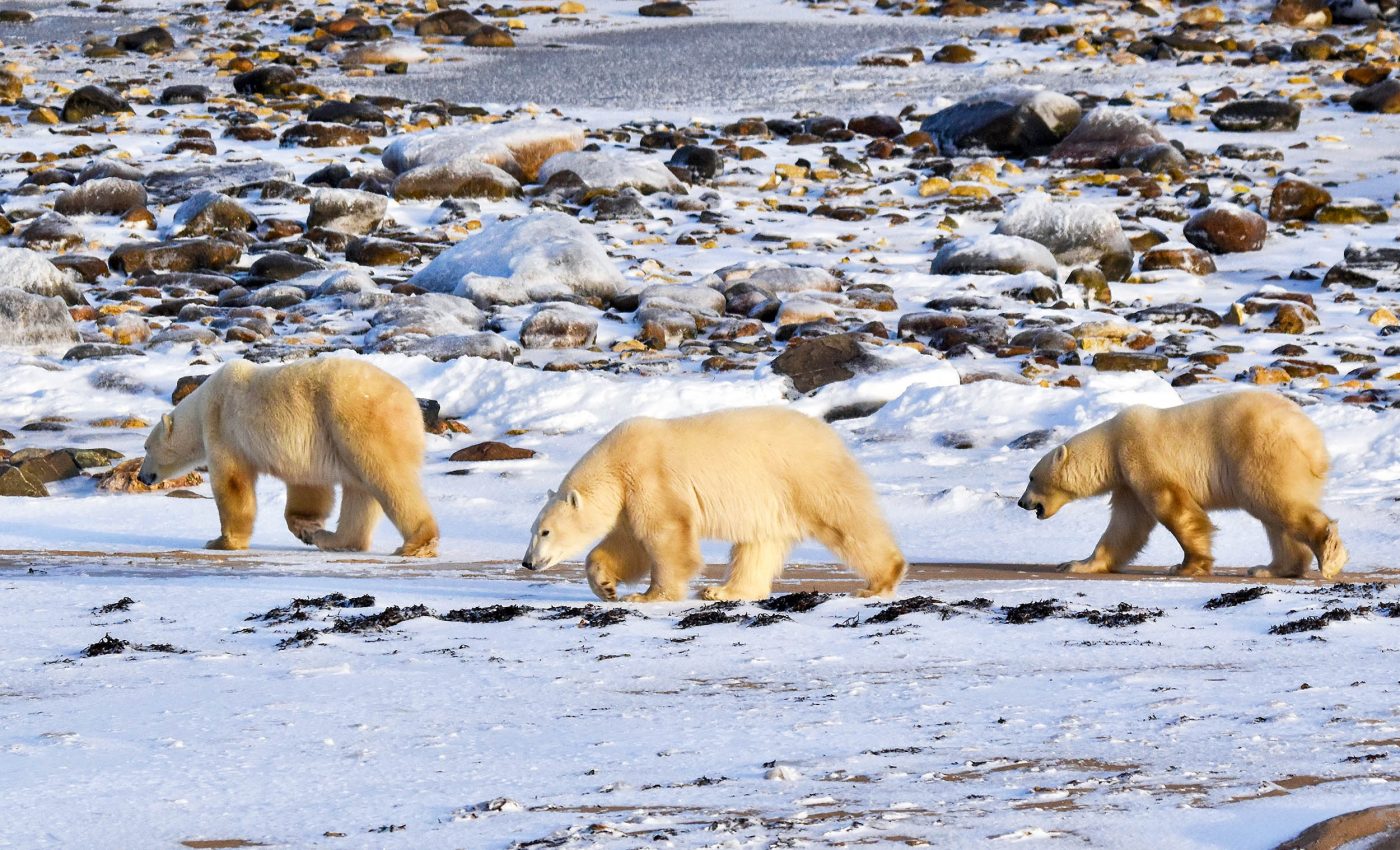
Polar warming is unleashing a public health crisis worldwide
Climate change often feels like a slow background issue, yet the forces that drive it can shift suddenly and reshape our lives in unexpected ways.
The Arctic and Antarctic hold enormous power over our climate. Rising temperatures in these polar regions influence storms, disease, food systems, and health outcomes across the world.
In a new study, scientists argue that polar warming is becoming a major driver of global health risks.
Polar shifts ripple outward
An international research team led by Gail Whitman, a professor of sustainability at the University of Exeter, studied how rapid polar warming shapes human health.
The researchers found strong links between melting ice, permafrost thaw, and ocean changes plus a wide range of health threats.
Many current models overlook these links and treat polar change as a separate crisis. The study shows that this view misses how deeply these regions influence global systems.
“Polar change is not a distant crisis,” said Netra Naik, research fellow at Arctic Basecamp and lead author of the paper.
“Melting ice sheets, rising sea levels and shifting weather patterns have complex consequences that extend far beyond the Arctic and Antarctic affecting food security, disease burden and health infrastructure. This is not just an environmental issue, but a global health emergency.”
Risks extend beyond the poles
Scientists highlight that several polar tipping points are approaching critical stages. These include the collapse of major ice sheets and sudden permafrost thaw.
Such shifts can cause rapid warming, methane release, disrupted rainfall, and rising seas. These effects shape health risks far beyond the polar circle.
Polar regions warm faster than any other part of the planet. This rapid heating weakens jet streams and slows key ocean currents.
These disruptions increase storms, floods, droughts, cold snaps, and heat waves. Each event raises injury, death, and mental health strain. The research explains that these events do not act alone but often occur together.
Rising health threats from polar warming
The experts noted that current climate models underestimate ice melt and permafrost thaw. This gap affects global health projections.
For example, an ice-free Arctic can shift the timing of major warming thresholds. Rapid permafrost loss releases pollutants and greenhouse gases that intensify warming. Each process creates a loop that drives more climate stress.
Researchers stress the need for better integration between climate data and health data. They argue that fragmented research slows understanding.
Many regions lack detailed ground data, which limits accurate predictions. This gap leaves countries less prepared for rising health threats linked to polar change.
Growing global health strain
Increasing temperatures allow insects and rodents to expand into new regions. This shift spreads dengue, Lyme disease, and hantavirus into places that once avoided them.
Warmer oceans support the spread of Vibrio bacteria, increasing risks of infections in higher latitudes. Mosquito-borne diseases also reach new regions as winters grow milder.
Rising seas push salt into drinking water. This increases risks of pre eclampsia, kidney problems, and some cancers. Flooding spreads cholera and typhoid and raises long-term respiratory issues.
Drought increases malnutrition, weakens immune responses, and deepens food and water insecurity. These pressures grow strongest in low-income regions with fragile health systems.
Polar change also shapes large-scale food systems. Shifts in rainfall, heat, and soil conditions reduce crop yields of rice, wheat, and maize. Reduced harvests raise malnutrition risks for millions.
Farmers face heat stress and water pollution, which reduces their ability to work. This combination increases disease burdens and food shortages.
Mental health toll of polar change
The study highlights the rising mental health toll of climate events linked to polar change. Heat waves increase anxiety, depression, and suicide risk.
A single degree rise over several years can create millions of new mental health cases. Storms, displacement, and growing uncertainty leave long-lasting psychological harm.
Extreme events, poor air quality, and repeated disasters create trauma. People lose homes, farmland, and community structures. This strain pushes vulnerable regions toward deeper insecurity.
Scientists predict that global mental health burdens will rise sharply without stronger action.
Arctic health risks rise
Communities in the Arctic face direct and severe impacts. Thawing permafrost damages roads, homes, water systems, and essential services. Melting ice reduces access to traditional food sources.
Declines in fish quality and availability reduce nutrient intake. These changes raise risks of kidney disease, heart disease, and pregnancy complications.
Thawing ground releases long-trapped chemicals and microbes. Some pathogens date back centuries. These microbial releases raise new uncertainties for public health.
Wildfires in northern regions send smoke across continents, raising respiratory illness and premature death in nearby and distant populations.
Urgent action is needed
The research calls for global cooperation and stronger health planning. It stresses that health impacts from polar change remain underexamined.
Many studies remain siloed and lack shared metrics. The authors argue that health systems must prepare for more extreme events, new disease ranges, and food and water instability.
“Ignoring these potential drivers of disease and death is not an option,” said Whiteman. “We need stronger international collaboration between climate scientists, health professionals, and data experts to prevent harm and prepare our systems for the challenges ahead.”
Preparing for the future
The study urges nations to invest in resilient health systems, local data efforts, and long-term planning. It also stresses the importance of social and economic factors.
Regions with weak infrastructure face the greatest risks. Stronger support can reduce future harm.
Polar regions are changing fast. Their shifts send ripples through every climate system on Earth. Understanding these pathways helps the world prepare for a future shaped by rapid warming at the planet’s edges.
The study is published in the journal Ambio.
—–
Like what you read? Subscribe to our newsletter for engaging articles, exclusive content, and the latest updates.
Check us out on EarthSnap, a free app brought to you by Eric Ralls and Earth.com.
—–













